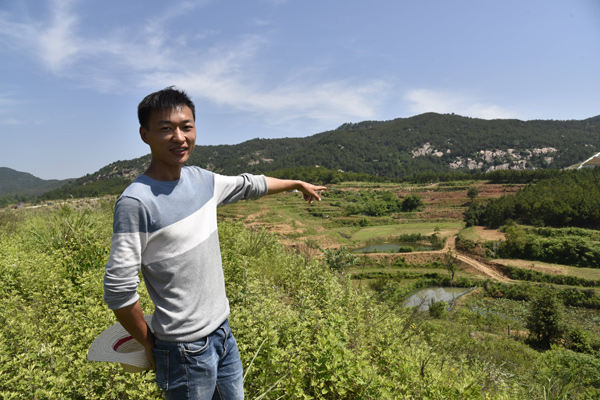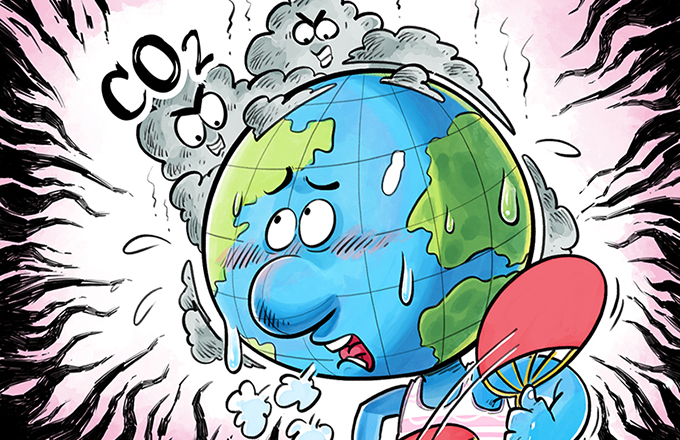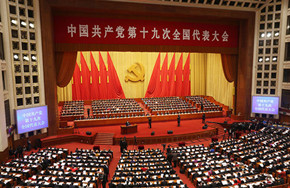Eco-priority in development welcome
 |
|
Eco farmer Hu Zhongqing introduces his ecological agricultural garden in Macheng, Hubei province. [Photo by Wu Yan/China Daily] |
Given the many pressing environmental problems in the world, and the current political situation in the United States, it is encouraging that the world's largest developing country has a clear environmental policy. If these policies are implemented, we could see great improvements in the coming decade, and these efforts could give a much-needed boost to environmental ambition around the world.
The chapter on the environment, called "Speeding up Reform of the System for Developing an Ecological Civilization, and Building a Beautiful China", suggests ecological reform is a top priority of the country's leadership. "Ecological civilization" is a positive vision of humankind living in harmony with nature. It will require thorough integration of environmental considerations into the economy, politics, culture and society.
"Beautiful China" ties a good environment to a sense of national pride. The priorities reflect one of China's biggest problems: our civilization isn't very ecological, and swathes of coastal China aren't much to look at.
The environment chapter opens with a warning: "Man and nature form a community of life. Only by observing the laws of nature can mankind avoid costly blunders in its exploitation (of natural resources). Any harm we inflict on nature will eventually return to haunt us."
It follows with four priority areas: promoting green development, solving prominent environmental problems, intensifying the protection of ecosystems and reforming the environmental regulation system. These priorities cover everything related to the economy, including such things as consumption, clean technologies, recycling and saving of energy, water and resources. It also spurs the government to do better when it comes to conservation.
In addition to air, water and soil pollution, some new areas of emphasis are included, such as river basin management, offshore areas and agricultural run-off. The priorities continue to emphasize the importance of disclosing environmental information, public participation and the role of NGOs. It is good to see that ecosystem protection is now one of the major priorities.
The final priority is particularly interesting as it alludes to some major institutional reforms. Currently, environmental management is split over different ministries, sometimes with unclear divisions of responsibilities or with in-built conflicts of interest. I foresee that a ministry-level department may be formed which will hold legal ownership of public natural resources such as forests, mountains, lakes and nature reserves.
Importantly, it will be able to go to court if parties cause damage to these resources. The Ministry of Environmental Protection may gain important functions in regulating not only pollution (its current primary function) but also ecosystem protection. We should expect to get more clarity on these institutional reforms over the course of next year.
The need to further strengthen law-based governance, too, features prominently in the report. This is very important for the environment, because many environmental problems in China are the result of poor implementation and enforcement of environmental laws. The report clearly envisions a strong role for the judiciary.
It reaffirms that the environment should continue to be a major priority for China, and that this work will intensify. Xi also makes it clear that China understands it should play its part in ensuring global ecological security. This is very important, given the massive investments China is making in other countries and its weight in international agreements on issues such as climate change, biodiversity and oceans.
The bottom line is that a rigorous approach to environmental protection is now enshrined in the Party Constitution, and this is good news for the environment.
At the same time, we should have realistic expectations-even though they are a top priority, these ecological reforms are challenging and will take time to be fully implemented.
The author is chief representative in China of ClientEarth, Europe's premier nonprofit environmental law group. He was previously team leader of the EU-China Environmental Governance Programme.



















